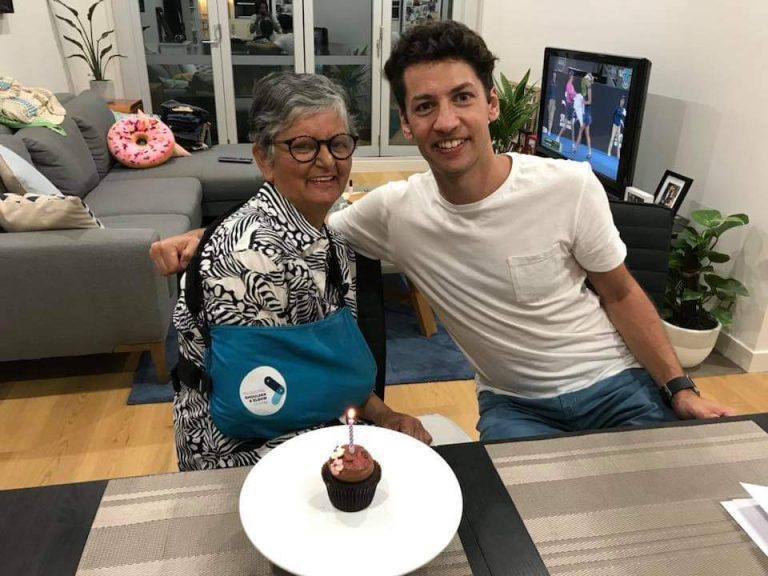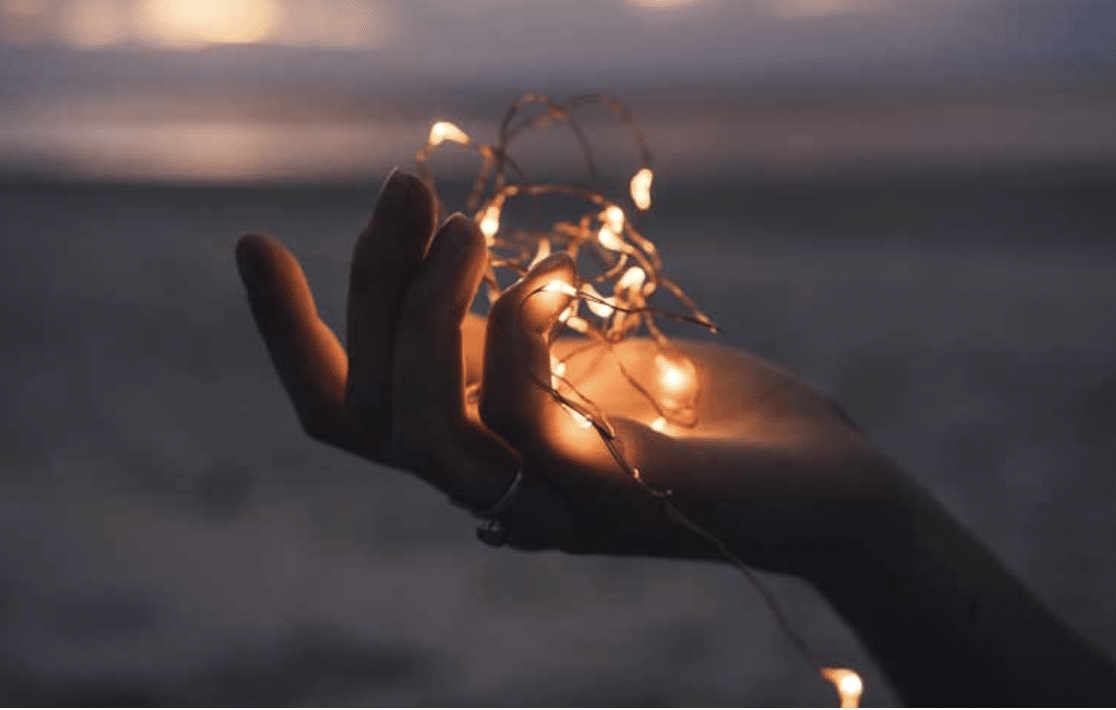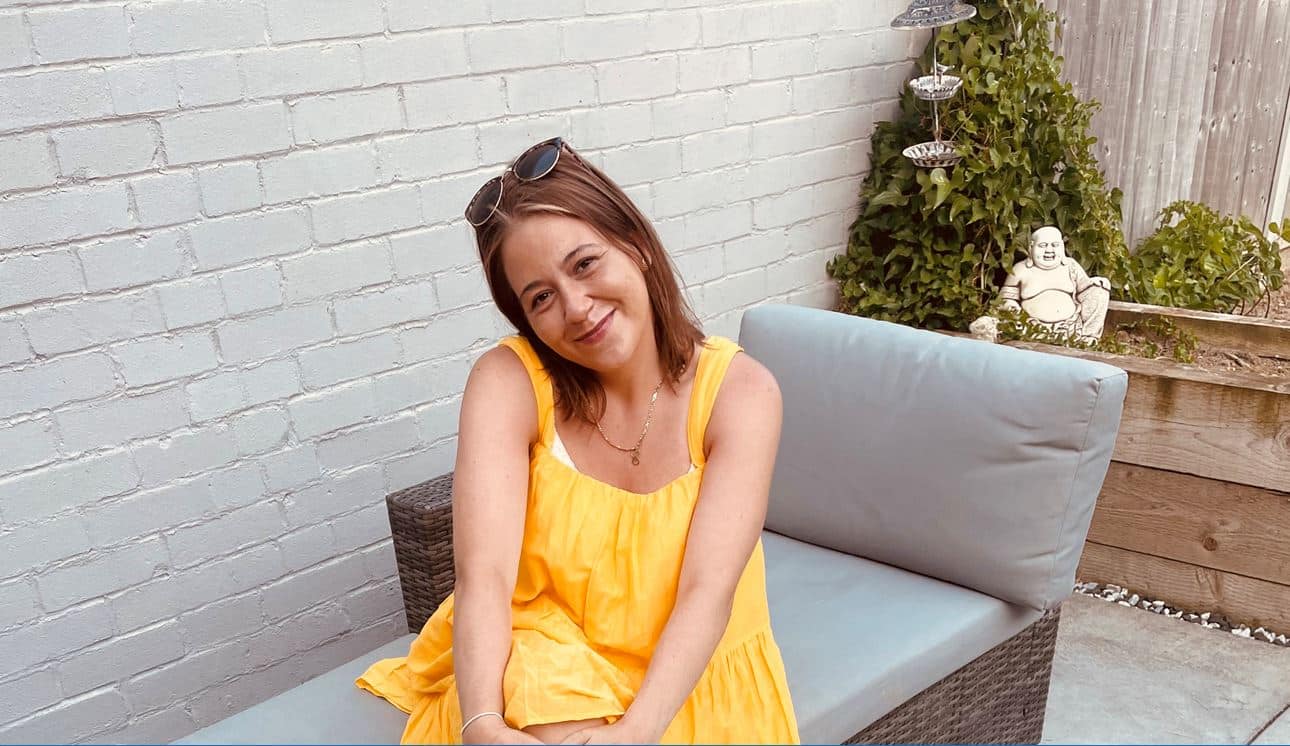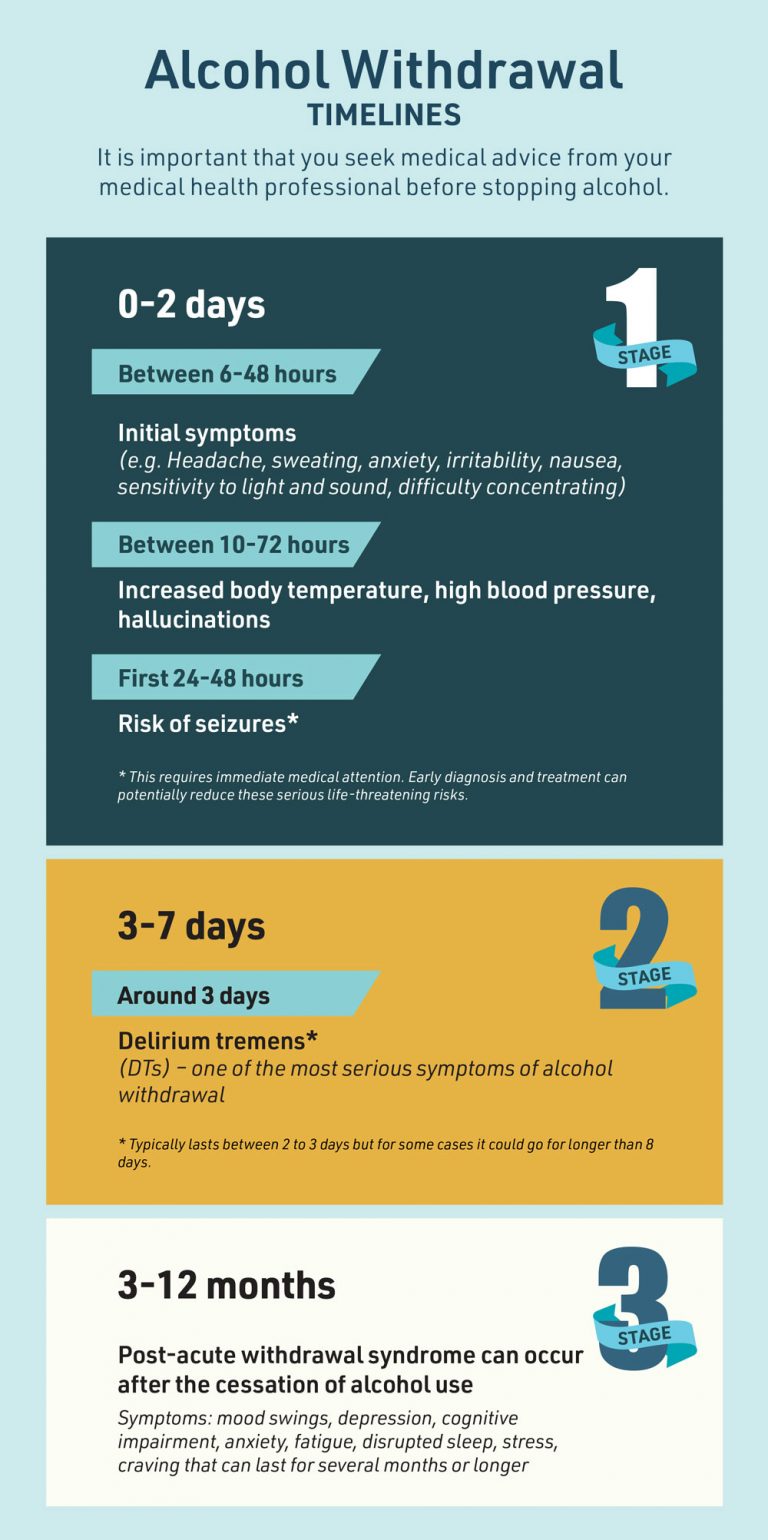Making the decision to change our relationship with alcohol is a significant step. It can take some time and there may be some slips and bumps along the way before we decide to make changes. For a long time, many of us sit on the fence, feeling the negative effects of our drinking behaviours but also overwhelmed and fearful of the prospect of change. This article explores the stages of change and the challenges associated with changing one’s relationship with alcohol, along with some questions for personal reflection and tips as you change your relationship with alcohol.
It’s normal to experience fear and doubt when considering making a change. But with preparation and support, it’s possible to take the necessary steps towards achieving long-term goals.
The Stages of Change
Change can be difficult, especially when it’s associated with a pattern of behaviours that have endured over time. In the short-term, certain behaviours seemed to be an effective way to cope in difficult situations. However, these same coping behaviours may now be ineffective as they keep you away from achieving some of your longer-term valued goals.
The change mechanism is complex and doesn’t always go according to best intentions. You might put a lot of time, energy and focus into taking two steps forward and then you might find an obstacle that takes you one step back. Change requires awareness, commitment, the right support and a lot of self-compassion.
It can be helpful to understand what might happen in the different stages of change so that you can recognise and plan the steps you need to take in each change process to guide you toward achieving your long-term goals.
Below is one version of the stages of change model as proposed by Prochaska, Norcross & DiClemente, (2010). There are six main stages in this model: precontemplation, contemplation, preparation, action, maintenance and termination or relapse. Although change does not always occur linearly, some processes tend to occur at specific stages of change.
The Six Stages of Change
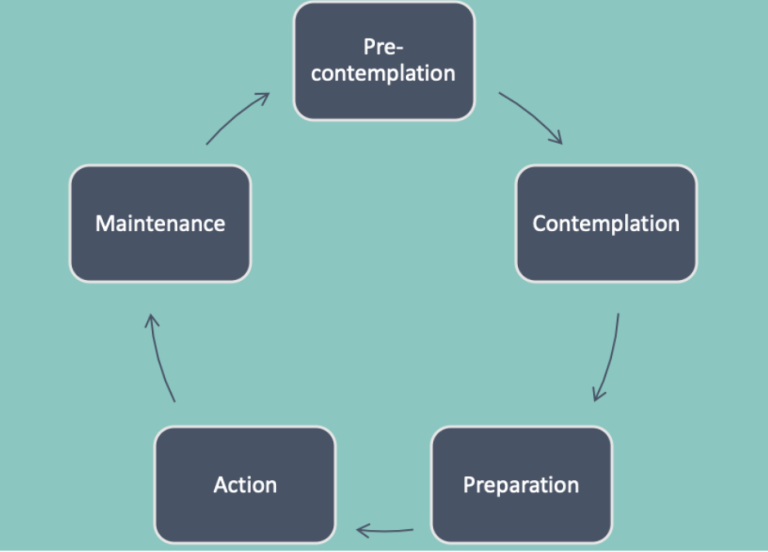
1. Pre-contemplation
Someone in this stage might be aware that there is a problem along with a few negative consequences to drinking. They might feel hopeless and not believe they can make the required changes. At this stage, the person has no intention of changing their relationship with alcohol and they’re unlikely to take action soon.
2. Contemplation
The person knows there is a problem and starts considering a different way of living. They are aware of the pros and cons of drinking but feel ambivalent about change. In this stage the person has not yet decided to commit to change.
3. Preparation
This stage begins with the intention to make changes. Initial steps are taken and the person begins to explore options to help them plan those steps towards achieving the desired change.
4. Action
This stage involves the first active steps toward change. The person makes a commitment, enlists assistance from a support network and actions their own recovery journey plan. The person tries new behaviours, but these are not yet stable.
5. Maintenance
The person establishes new behaviours on a long-term basis and remains committed. They establish the gains of their changed behaviour.
6. Termination or Relapse
The person maintains the ultimate priority goal or sometimes may turn back to old ineffective coping behaviours. Hope for sustained change can still be reclaimed.
The fear of how to cope without alcohol can often kick in, or doubt arises about whether it is even possible to reduce drinking after drinking so much for so long. But there is still this feeling that drinking isn’t serving us anymore. Author, Annie Grace (This Naked Mind) calls this ‘the mental division’. Once this division tips over into wanting to make a change (more so than staying the same), we are ready to take some action steps.
But what steps? And how? It can be difficult to know where to start.
Two things that can be helpful at this point are:
- Preparation
- Support
Preparation
A large part of preparation is taming the inner voice. The voice that spreads fear about how impossible or hard change will be. This inner voice can get really specific, with self-sabotaging thoughts like “I will lose all my friends”, or “I won’t be fun anymore” or “I’ve been like this for so long”. The good news is, there are many ways to start taming this inner voice. Counsellors call this, reinforcing your reasons for change. People can reinforce their reasons for change by writing a list of things that have led them to their decision to make some changes. Things like experiences, events, relationships and relationship conflict, and hopes and desires.
Another helpful exercise is to write a list of the benefits of making changes. Being aware of how things can change can take time to develop in your mind. This is where things like time and support can be helpful.
Support
When we are on the brink of big changes, support can be helpful. The simple act of talking to someone about ‘the mental division’ that occurs can reveal the way forward. Supports like checking in with a General Practitioner, talking to a counsellor, or using a peer support service like Daybreak are a great way to prepare to make some changes.
If you would like to know more about how to prepare for changing your relationship with alcohol, check out this article, from Counselling Online.
https://www.counsellingonline.org.au/making-a-change/preparing-to-make-a-change
Questions for reflection
- Where do you see yourself in the change process?
- How will you get to the next stage of change?
- What changes are you willing to make to support you on your recovery journey?
- What potential obstacles may get in the way of your journey towards change?
- What support have you enlisted to assist you to stay on your recovery journey?
Some tips for navigating the stages of change:
- Write down the change you want to make. For example, you might want to cut back on your drinking or quit alcohol completely.
- Be specific about how you will implement the change. For example, if you are cutting back on drinking, write down what your daily or weekly limit will be and keep a track of your progress.
- Minimise all the potential triggers. For example, remove alcohol out of easy reach, plan activities that doesn’t involve alcohol and hang out with people who don’t encourage drinking.
- Enlist your support network. For example, share your intentions with trusted friends and loved ones. Ask them to encourage you to stay on track along the way. Work with a good therapist to build some strategies to help you manage cravings.
- Be you biggest champion. Remind yourself everyday how proud you are for giving this a go!



